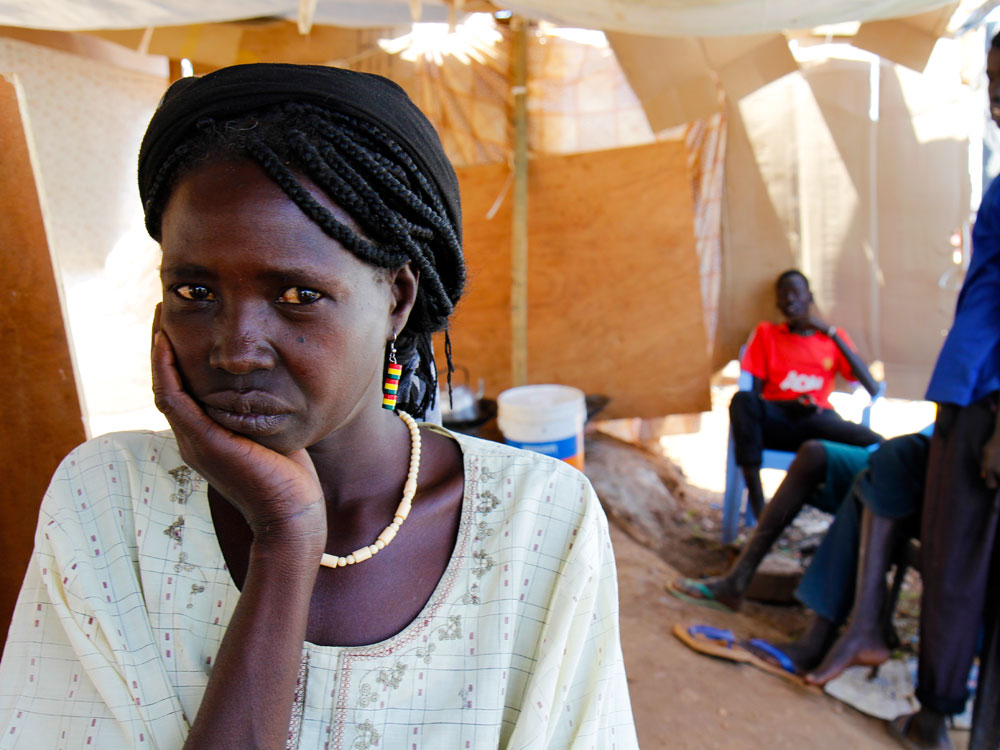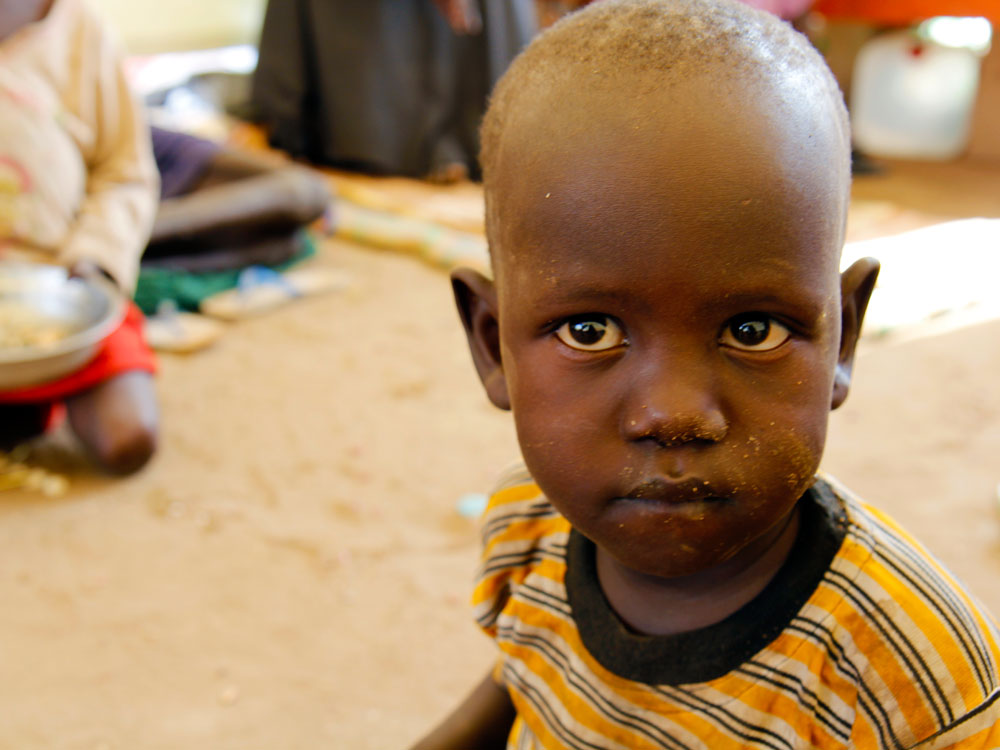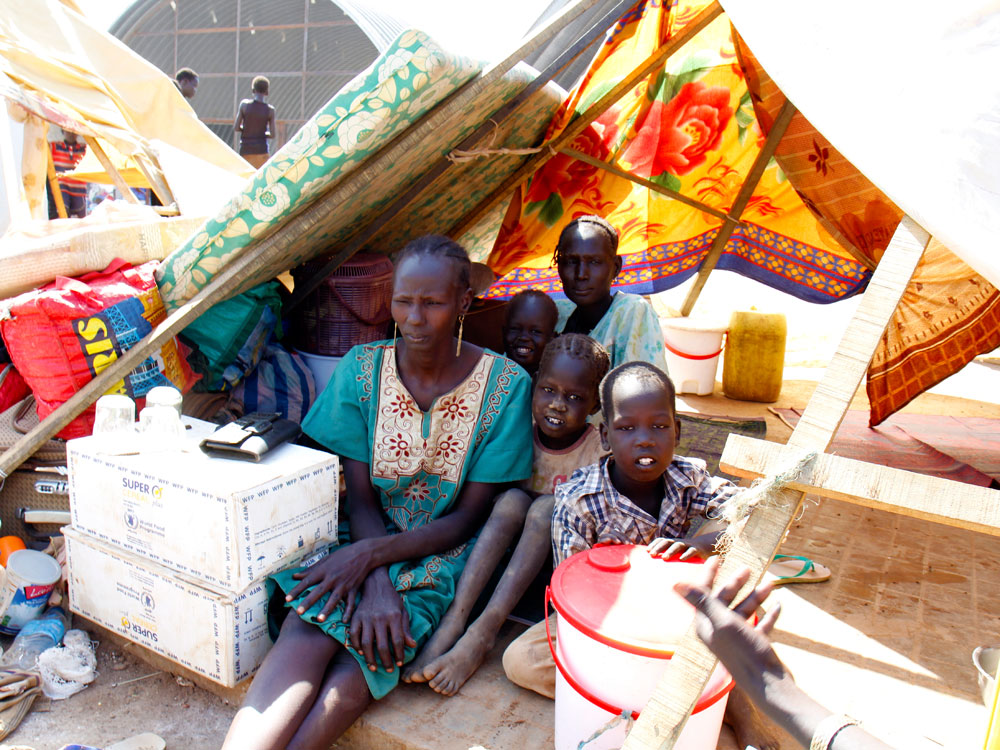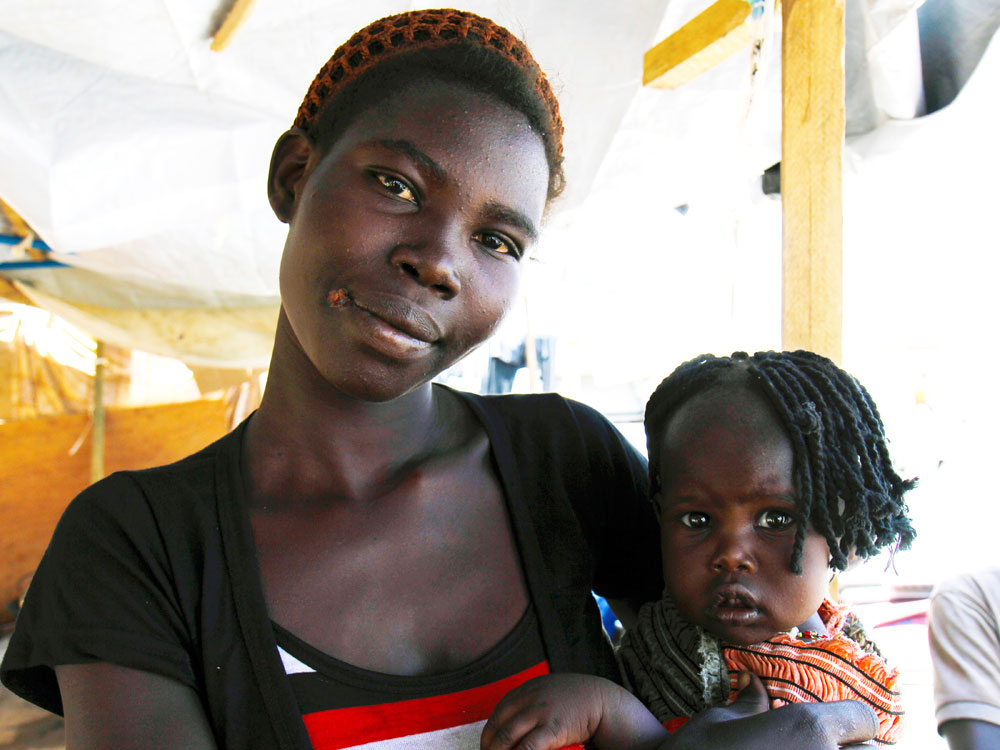The Heartbreaking Truth About How Women Are Bearing the Brunt Of The Conflict In South Sudan
What started as a power struggle between the South Sudanese president and former vice president sparked an armed conflict that spread across the country, leaving more than 1,000 dead and forcing 200,000 more to flee their homes.

What started as a power struggle between the South Sudanese president and former vice president sparked an armed conflict that spread across the country, leaving more than 1,000 dead and forcing 200,000 more to flee their homes.
The women of South Sudan have seen loved ones killed, neighbours beaten, and their property looted and destroyed. They now face the herculean task of simply keeping themselves and their children alive as their country continues to unravel. This is how women are bearing the brunt of the conflict:
1. They're forced to make decisions no mothers should have to make.
When fighting erupted, people scattered, leaving behind homes and everything they owned, afraid they would be killed if they stayed. Those unable to run were often left behind. Regina, 45, was forced to flee without her eldest son. Paralyzed since he was baby, Regina could not carry both him and her youngest child. 'I thought I would bring the youngest [to the United Nations base] first, and then come back and bring the older one,' she says, tears piercing through her bloodshot eyes. She tied her three-year-old to her back and left the boy with her grandmother in their home in Juba. Fighting gripped the capital for three more days, making it impossible for her to get back to her son. Once the shooting stopped, she returned home, terrified of what she would find. She discovered both her son and grandmother shaken, but alive. 'I am now looking for help so I can save my children and eventually leave here,' she says. 'I need to care for my children. What do I do?'
2. Lost and alone, children have been robbed of their parents by conflict. In addition to those killed since the fighting began, thousands of others are missing. Many of them are mothers whose children are now alone or in the care of a family that is not their own. One is three-year-old Moses, whose mother disappeared three weeks ago when she left a United Nations base in Juba to collect food. Her friend Esther, 30, was with her when they ran into soldiers on their way to the market. 'We were so afraid,' she says. 'I ran.' It was in the race back to the United Nations base that Moses’ mother vanished. 'No one knows whether she is dead or captured,' Esther says. 'After three days, the boy asked me, "Where is my mother? Was she killed’?" Unsure of what to say, she assured Moses that his mother was simply traveling and would return soon. But with each day that passes, it seems less and less likely that Moses will see his mother again, leaving him in the care of Esther who, despite having children of her own and losing all that they owned in the conflict, has taken him in.

3. Many women are unsure if their husbands are alive or dead. In the chaos that ensued after fighting broke out, many women were separated from their husbands and have not heard from them for three weeks. This leaves them to care for their children alone, uncertain if they will ever be reunited with their husbands. Irene, 35, and Francis, 40, are married to two brothers, neither of whom has surfaced since the conflict engulfed their neighborhood. They now live with their 10 children in a makeshift shelter beside a former aircraft hangar at a United Nations base in Juba. While they feel safe at the compound, Irene and Francis are anxious about how they will get by, let alone build new lives from scratch for themselves and their children without their husbands to help them. 'I am worried about how we can leave here,' Francis says. 'I don’t think we will be able to go home.'

4. An uncertain year ahead for women in South Sudan. The women who I met in South Sudan are not much different than you or me. They are mothers, sisters, daughters, and friends who had hopes that 2014 would be a healthy, happy year for themselves and their families. Instead, they are starting the year having lost people they know and loved, along with nearly everything they owned. With each day that the fighting goes on and a ceasefire goes ignored, their country become harder and harder to put back together, and with it, their futures become more and more uncertain. Back at the United Nations base in Juba, Joslyn still does not know where her husband is. She has turned her shelter into a market stall by day, where she sells tomatoes in a meager attempt to eke out an existence for herself and her two girls. Cradling her six-month-old daughter, Joslyn lowers her gaze. 'I wish everyone,' she says, 'could live in unity.'
Marie Claire Newsletter
Celebrity news, beauty, fashion advice, and fascinating features, delivered straight to your inbox!

Names in this story have been changed for security reasons.
Concern Worldwide is appealing for funds and that people can donate, here.
The leading destination for fashion, beauty, shopping and finger-on-the-pulse views on the latest issues. Marie Claire's travel content helps you delight in discovering new destinations around the globe, offering a unique – and sometimes unchartered – travel experience. From new hotel openings to the destinations tipped to take over our travel calendars, this iconic name has it covered.
-
 Selena Gomez has re-entered the conversation about her 'Emilia Pérez' criticism
Selena Gomez has re-entered the conversation about her 'Emilia Pérez' criticismBy Jenny Proudfoot
-
 I'd never run a marathon before - six years on, I'm one of the UK's fastest female marathoners. Here's how I train every week
I'd never run a marathon before - six years on, I'm one of the UK's fastest female marathoners. Here's how I train every weekSerious inspo, served.
By Ally Head
-
 There’s a big difference between sensitive and *sensitised* skin—here are four derms on the key distinctions
There’s a big difference between sensitive and *sensitised* skin—here are four derms on the key distinctionsPlus, ways to approach both
By Denise Primbet